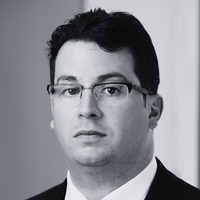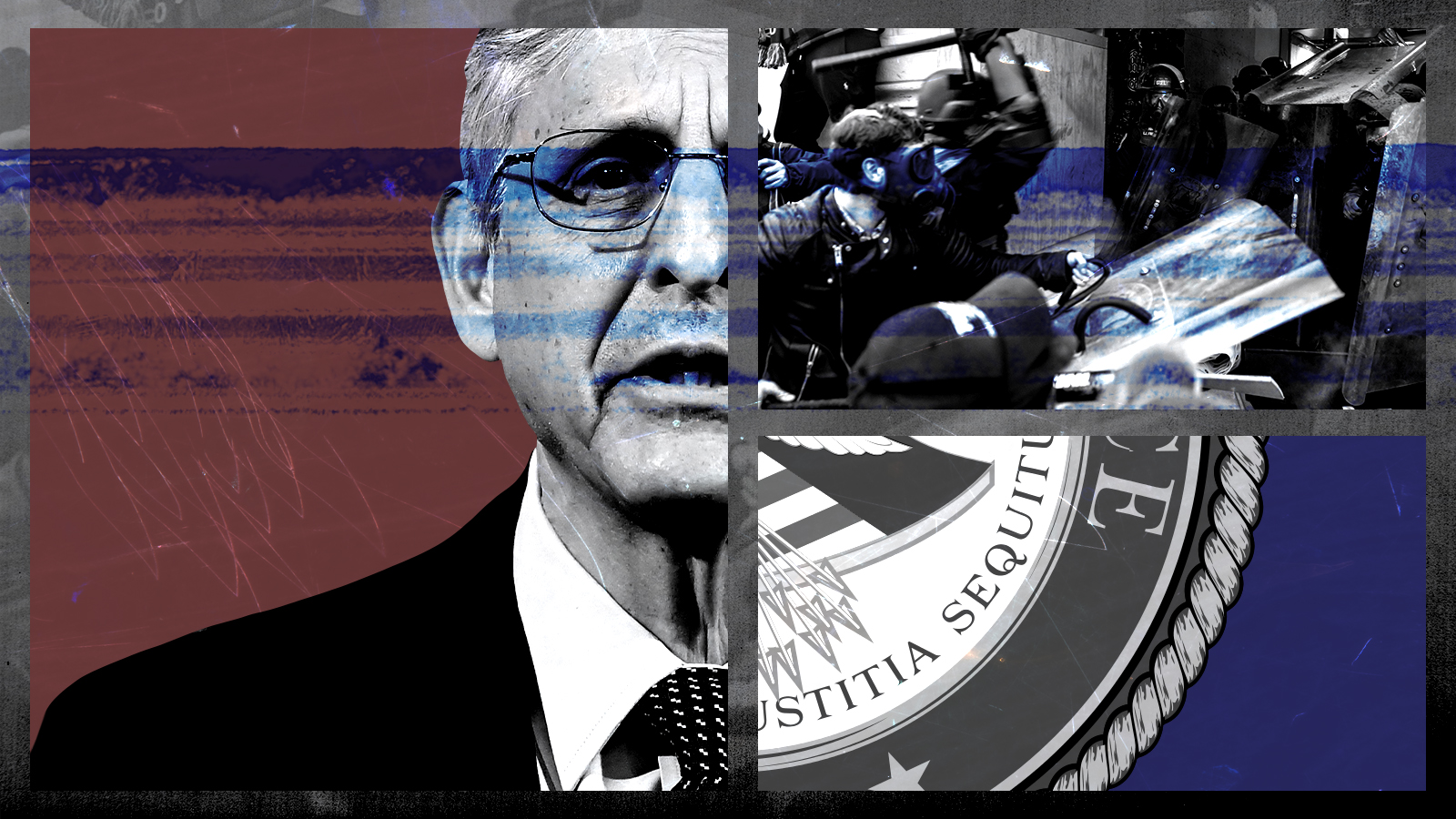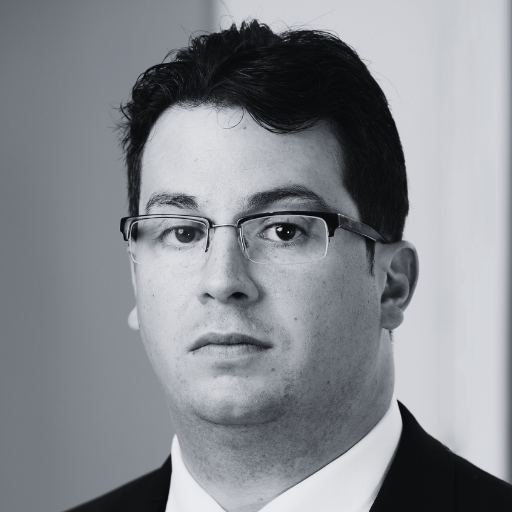The dangerous incentive in a new domestic terror unit
Good intentions aren't enough to protect Americans' civil rights and liberties


A free daily email with the biggest news stories of the day – and the best features from TheWeek.com
You are now subscribed
Your newsletter sign-up was successful
The U.S. Department of Justice (DOJ) this week announced it would create a new internal unit to focus on domestic terrorism. Citing ethnically and politically motivated killings in El Paso, Pittsburgh, Charleston, and two attacks against Congress — Jan. 6 last year and the shooting at a Republican practice session for the annual congressional baseball game in 2017 — Assistant Attorney General Matthew Olsen told the Senate Judiciary Committee that countering violent domestic extremists is among DOJ's "highest priorities." The new unit will work closely with the Civil Rights Division, Olsen added, likely to allay civil libertarian fears of government overreach.
Certainly, given the troubling episodes of violence meant to harm or intimidate political opponents and national organizations implicated in those events, a coordinated federal response seems appropriate. Indeed, federal law enforcement is most justifiable when state and local agencies are unable or, in the worst cases, unwilling to effectively protect civil rights and liberties of individuals in their jurisdictions. The federal government is often the organization best positioned to find and prosecute political actors who repeatedly participate in violent incidents in different jurisdictions across the country.
However, political and ideological views and the right to disseminate and organize around those views — no matter how noxious — are protected by the Constitution up to the point those actions spur violence or other crimes. Even with the best intentions and staffed with attorneys of the highest integrity from the outset, a domestic terrorism team will be inherently susceptible to shifting politics and mission creep that could impermissibly target protected First Amendment activity and violate the due process rights of law-abiding Americans.
The Week
Escape your echo chamber. Get the facts behind the news, plus analysis from multiple perspectives.

Sign up for The Week's Free Newsletters
From our morning news briefing to a weekly Good News Newsletter, get the best of The Week delivered directly to your inbox.
From our morning news briefing to a weekly Good News Newsletter, get the best of The Week delivered directly to your inbox.
This is hardly a baseless worry. Recent history is replete with examples of federal abuses of power that violated the civil liberties of Americans in the name of anti-terrorism.
Most notoriously, the Church Committee investigation revealed how the FBI, CIA, and NSA repeatedly and illegally spied on and undermined protected First Amendment activities as part of the COINTELPRO operation from the 1950s through the early 1970s. Closer to the present day, fear of terrorism led to surveillance of Muslim communities in the United States before 9/11, and famously increased thereafter, including warrantless wiretaps of telephone calls and surveillance of politically active Muslim Americans. Other investigations have led to specious charges against less-than-competent individuals for conspiracies mostly or wholly concocted by law enforcement agents or informants.
Since at least the early 2000s, progressives and civil libertarians repeatedly warned about potential and subsequently confirmed abuses of the Foreign Intelligence Surveillance Act (FISA). Passed in 1978 as a check on executive authority to spy on Americans, the act and the FISA court (or FISC) it created eventually enabled the very behavior they were meant to prevent.
Following 9/11, FISC approved hundreds of requests that resulted, inter alia, in the phone record data collection of millions of Americans with no conceivable tie to terrorism or espionage. Although the post-9/11 abuses started during the George W. Bush administration, and reforms were initially resisted by Republicans, FBI agents later misrepresented evidence to FISC to investigate Carter Page, a Trump campaign advisor, prompting outrage and calls for reform from conservatives.
A free daily email with the biggest news stories of the day – and the best features from TheWeek.com
Presumably, few domestic terror investigations would fall under the purview of FISC and its typically secret proceedings, but the evolution of FISA from a bulwark against government snooping into a conduit for mass data collection is instructive in three key respects.
First, well-intended legislation is not enough to protect American civil liberties. Procedures to implement a law may naturally evolve into patterns and norms that hinder oversight and prevent accountability, especially in institutions not regularly subject to public scrutiny.
Second, particularly within a law enforcement context, any investigating agency will necessarily try to gather as much information as it can, even to the point of taking in more data than it can reasonably handle. This is not because law enforcement is inherently bad; rather, the essence of investigation is the collection of information, and thus it is unreasonable to expect those agencies to strictly limit a core function of their own accord.
Third, bureaucratic institutions are never fully insulated from partisan pressures or interference. Politics will always play some role in how a government institution is run and what protections it receives from the elected branches of government. This doesn't mean that every new president or attorney general will target specific groups or shield others, but political appointments and publicly stated enforcement priorities will invariably influence who ultimately faces investigatory scrutiny.
Thorough internal reporting, continual congressional oversight, and public legal challenges to asserted government authority are essential to reining in potential due process abuses in any federal enforcement agency. Current practices provide ample reason to be on alert for future abuses.
Last year, Cato Institute senior fellow Patrick Eddington wrote in the Orange County Register that the FBI had opened up an "assessment" of the Concerned Women for America (CWA), a conservative non-profit advocacy organization. An assessment is a type of FBI investigation, created by U.S. Attorney General Michael Mukasey in 2008, that requires no direct evidence of criminal activity to begin. According to internal documents Eddington obtained, the Obama-era FBI opened the assessment on CWA in 2016 after the organization received a two-star rating from Charity Navigator, a nonprofit watchdog that rates organizations' use of funds on a five-star scale.
The agency was ostensibly investigating the "possibility of fraudulent activity," but, put simply, assessments are a way for the FBI to go looking for crimes they have no legally justifiable reason to suspect. This is a blatant violation of basic principles of due process, yet a 2011 New York Times report showed the FBI initiated more than 80,000 assessments in a two-year period, most of which amounted to nothing — as did the CWA assessment.
But just because the government ultimately drops a groundless investigation does not mean no harm has been done by their snooping. News of federal investigations can be ruinous to personal reputations, even if the targets are ultimately exonerated. Moreover, if criminal investigations become commonplace against political actors, they can have a chilling effect that dissuades Americans from exercising our constitutional rights.
Crucially, all of the above instances happened without a dedicated domestic terror unit at DOJ. Adding a new unit will increase the likelihood of similar abuses.
The creation of any law enforcement entity with an open-ended mission invariably provides incentive to fulfill that mission, whether or not it is the best use of resources at any given time. Just as gang, drug, and gun task forces in local police departments can always find something to do, the potential for domestic terrorism will never fully go away. So even if the risk of domestic terror declines, any lawyer in that unit will have a built-in incentive to find new terrorists. So long as the DOJ and FBI have the investigative authority to look at political groups for no particular reason, the risk for abuse is so great it can be treated as inevitable.
Ethnic and political violence cannot be tolerated in a free society, and the government has an obligation to protect Americans from such intimidation. However, the government must not violate our political rights in the name of their protection. And while it is too early to pass judgment on the initial actions of the new domestic terrorism unit, history and experience teach us to be wary of its power going forward, no matter how well-intended it is or which political party is controlling the office.
Jonathan Blanks writes about criminal justice policy, American culture, race, and law. He serves as contributing editor at Clause 40 Foundation and visiting fellow in criminal justice at the Foundation for Research on Equal Opportunity. Previously, he spent 12 years as a researcher and writer at the Cato Institute. A graduate of Indiana University, he lives in Washington, D.C.
-
 The ‘ravenous’ demand for Cornish minerals
The ‘ravenous’ demand for Cornish mineralsUnder the Radar Growing need for critical minerals to power tech has intensified ‘appetite’ for lithium, which could be a ‘huge boon’ for local economy
-
 Why are election experts taking Trump’s midterm threats seriously?
Why are election experts taking Trump’s midterm threats seriously?IN THE SPOTLIGHT As the president muses about polling place deployments and a centralized electoral system aimed at one-party control, lawmakers are taking this administration at its word
-
 ‘Restaurateurs have become millionaires’
‘Restaurateurs have become millionaires’Instant Opinion Opinion, comment and editorials of the day
-
 The billionaires’ wealth tax: a catastrophe for California?
The billionaires’ wealth tax: a catastrophe for California?Talking Point Peter Thiel and Larry Page preparing to change state residency
-
 Bari Weiss’ ‘60 Minutes’ scandal is about more than one report
Bari Weiss’ ‘60 Minutes’ scandal is about more than one reportIN THE SPOTLIGHT By blocking an approved segment on a controversial prison holding US deportees in El Salvador, the editor-in-chief of CBS News has become the main story
-
 Has Zohran Mamdani shown the Democrats how to win again?
Has Zohran Mamdani shown the Democrats how to win again?Today’s Big Question New York City mayoral election touted as victory for left-wing populists but moderate centrist wins elsewhere present more complex path for Democratic Party
-
 Millions turn out for anti-Trump ‘No Kings’ rallies
Millions turn out for anti-Trump ‘No Kings’ ralliesSpeed Read An estimated 7 million people participated, 2 million more than at the first ‘No Kings’ protest in June
-
 Ghislaine Maxwell: angling for a Trump pardon
Ghislaine Maxwell: angling for a Trump pardonTalking Point Convicted sex trafficker's testimony could shed new light on president's links to Jeffrey Epstein
-
 The last words and final moments of 40 presidents
The last words and final moments of 40 presidentsThe Explainer Some are eloquent quotes worthy of the holders of the highest office in the nation, and others... aren't
-
 The JFK files: the truth at last?
The JFK files: the truth at last?In The Spotlight More than 64,000 previously classified documents relating the 1963 assassination of John F. Kennedy have been released by the Trump administration
-
 'Seriously, not literally': how should the world take Donald Trump?
'Seriously, not literally': how should the world take Donald Trump?Today's big question White House rhetoric and reality look likely to become increasingly blurred
